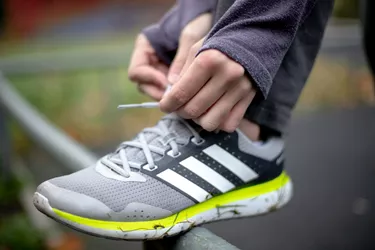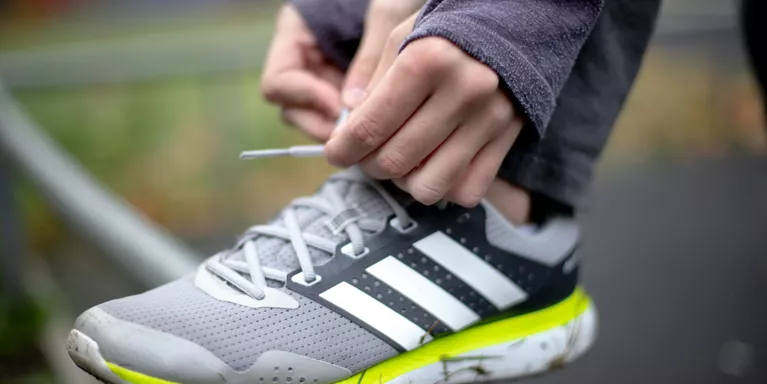Staying fit in the pandemic
Chris, who runs with a coach six times a week, blogs about how he had adapted to lockdown regulations.
Like many people who are into exercise, lockdown has had a significant impact on me. I am a keen runner, who trained six times a week before the pandemic. Then things became more complicated.
After lockdown was announced I couldn’t see my coach and could only run on my own
I was in supported housing before Covid19, but when we went into lockdown, I rejoined my family who are supportive. But, after lockdown was announced I couldn’t see my coach and could only run on my own.
I found this difficult and it started to affect my mental health. I couldn’t sleep and my head started to race. My consultant agreed that my coach could resume training. I was concerned that the police would stop us, but she gave me a letter explaining why I needed to train. Once I got into my routine, I felt much better especially when the government relaxed the rules for people with learning disabilities.
Running has helped me hugely in recent years. It has made me fit and done loads to boost my confidence and mental health. I was born with a learning disability, which made school difficult. I got great support at primary school and enjoyed my time there. I dropped back two years, which I liked as I got on with younger children and was able to learn.
But, when I went to secondary school, I struggled to make new friends. Some boys picked on me because I was older. The staff supported me and I felt safe in lessons, but the rest of the time school was frightening. The constant teasing affected my mental health and my behaviour became erratic.
I was diagnosed with bipolar and put on strong medication which made me put on weight
At 15, I had a breakdown I was taken to hospital, assessed and sent to a youth psychiatric unit. I was sectioned for three months. I was very scared and would hit things, then I was restrained which made me even more scared. I was diagnosed with bipolar and put on strong medication which made me put on weight and feel lethargic.
But, there were some positives to being sectioned. One doctor really listened to me and became like a friend, I got counselling and learnt to deal with my anger. Most importantly, I really got to understand my bipolar.
I have struggled to get regular counselling to help me deal with the aftermath of being sectioned. I still get nightmares about being restrained but I am arranging this privately using my benefits and hope this will start once lockdown finishes.
Running helps me stay well, gives me a routine and helps clear my brain
But, what helped most after being sectioned was the running. I started running seriously at 15 after watching the 2012 Olympics. My first charity run was the Sport Relief Mile, and from then on I joined a running club and progressed to running longer distances. I did the Bexhill marathon, which raised £1500 for my local school in East London. I have raised over £7000 for various charities including schools in Africa, an interfaith youth charity and a charity for people with genetic disorders. It’s good to feel I’m making a difference. Running helps me stay well, gives me a routine and helps clear my brain.
These days I keep myself busy in all sorts of ways. As well as running six times a week, I volunteer at a local youth charity, do my housework and socialise with my housemates. The staff ensure I don’t forget my medication. Volunteering has helped improve my confidence and given me a sense of pride as well as learning new skills.
Lockdown has provided a new challenge, but I am pleased with how I have coped.To keep myself well, I exercise at home, listen to calming music, dance to upbeat music and also use the time to text people. I play on PlayStation and do chores once a day. My advice for anyone struggling with lockdown is to have a good routine and, if you can, keep on running!

This is a mental health emergency – we need your help right now
The coronavirus pandemic is having a huge impact on our mental health. Help us be there for everyone who needs us at this crucial time.
Share your story with others
Blogs and stories can show that people with mental health problems are cared about, understood and listened to. We can use it to challenge the status quo and change attitudes.
















